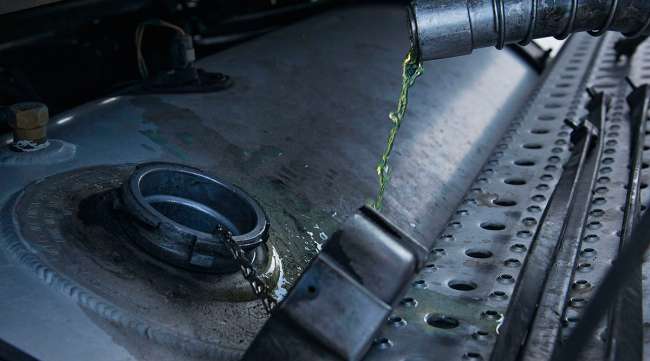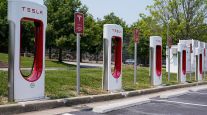Senior Reporter
House Advances Diesel-Reduction Program

[Stay on top of transportation news: Get TTNews in your inbox.]
Legislation that would authorize a federal emissions reduction program and fund research and development for technologies across the environmental sector recently passed in the U.S. House of Representatives.
Tucked in the measure is an authorization of more than $2 billion for the Diesel Emissions Reduction Act, or DERA. The program is designed to advance improvements in air quality through the mitigation of diesel emissions.
RELATED: Diesel Falls 1¢ to $2.394 in Fourth Consecutive Decline
“The Clean Economy Jobs and Innovation Act will spur clean energy innovation, electrify our transportation sector, make homes more energy-efficient, modernize our electric grid and create good paying jobs right here at home at a time we need them most,” Energy and Commerce Committee Chairman Frank Pallone (D-N.J.) said Sept. 24. “It also addresses the need for environmental justice by investing in grant programs for impacted communities and improving information sharing so Americans can be better informed about the risks in their neighborhoods. It is a net win for our environment and economy alike.”

Pallone
House Energy Subcommittee Chairman Bobby Rush (D-Ill.) said, “This bill will not only put our nation one step closer to a clean-energy future, but it will also support the relief of environmental justice communities that are right now overburdened by the pitfalls of fossil fuel generation and need better access to clean energy and clean energy jobs alike.”
Specifically, the bill would authorize $500 million for each of fiscal years 2021 through 2025. The program at the U.S. Environmental Protection Agency looks to reduce older, diesel-powered trucks on the road, as well as facilitate the transition in the freight industry to newer equipment along waterways, rails and commercial corridors. According to EPA, minimizing exposure around the country to diesel exhaust from older engines is beneficial to people’s health, as well as the environment.
Clean Economy Jobs and Innovation Act by Transport Topics on Scribd
The House bill, which passed by a vote of 220 to 185, also would seek to promote energy efficiency, authorize environmental justice grants, and boost funding for the Advanced Research Projects Agency-Energy.
In July, as part of a larger defense policy bill, the Senate adopted a reauthorization of the program through fiscal 2024. Senate Environment and Public Works Committee Chairman John Barrasso (R-Wyo.) noted, “The best way to make American energy as clean as we can, as fast as we can, is through innovation, not government regulation.”

Inhofe
Sen. James Inhofe (R-Okla.), a member of the Environment and Public Works Committee and Armed Services Committee chairman, observed, “Oklahoma has successfully used the DERA program as a cost-effective way to reduce pollution of diesel-powered vehicles, including hundreds of school buses, through public-private partnerships, making it possible for businesses to voluntarily upgrade to new, efficient technology while creating jobs.”
The move in the Senate also garnered significant bipartisan backing.
Last year, a coalition of stakeholders pressed Congress to act.
“The DERA voluntary program has enjoyed overwhelming bipartisan support in the committee and in Congress generally, and we are hopeful of similar support this year as well,” indicated stakeholders, such as American Trucking Associations, the American Association of Port Authorities, the American Lung Association, the American Highway Users Alliance, the Associated General Contractors of America and the Association of American Railroads.
Want more news? Listen to today's daily briefing:
Subscribe: Apple Podcasts | Spotify | Amazon Alexa | Google Assistant | More




